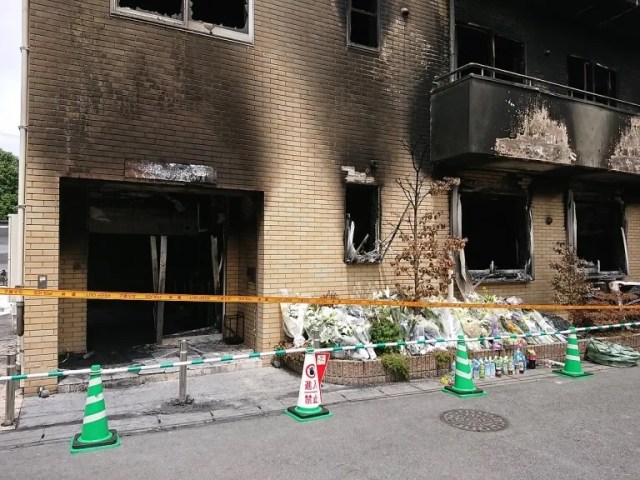Kyoto Animation president, arsonist’s attending physician comment following death penalty ruling

”I have absolutely no sympathy for him.”
On Wednesday, the trial of Shinji Aoba, the arsonist who attacked a Kyoto Animation studio in the summer of 2019 and killed 36 people, came to a close. With the 45-year-old Aoba admitting to the attack, expressing that he chose his method with the intent to maximize the number of deaths, and displaying little if any remorse, the Kyoto District Court has now sentenced him to death.
Following the verdict and sentencing, Kyoto Animation president Hideaki Hatta issued a statement.
In accordance with the rules of law, we have received the appropriate response and judgement. To the judges who carried this heavy responsibility for such a long period of time, and to the investigators, police, court clerks, and all others who were engaged in conducting a fair investigation and trial, I wish to express my deep respect.
Even after the judgement, the sadness I feel has not changed in the slightest. I feel nothing but pain in my heart when I think of the members of Kyoto Animation who lost their lives, those who were injured, and of the sadness of their loved ones.
I pray that remembering the animated works that they put their hearts and souls into, and the surviving members’ efforts every day to continue making such works, will connect their spirits to us, including those who have joined Kyoto Animation since the incident took place.
We will devote ourselves to continuing to value our workers, display their individual talents, and create animated works from here on.
Another prominent figure involved with the incident is physician Takahiro Ueda. During the arson attack, Aoba himself sustained heavy injuries from the flames he set, with burns covering over 90 percent of his body when he was taken into custody. Over the next four months, Ueda served as Aoba’s attending physician, performing an extensive series of skin transplants using cultured copies of Aoba’s remaining skin. Knowledge gained from the procedures has since been used to save the life of a burn victim elsewhere in Japan who was injured in a separate incident.
When informed that Aoba has been sentenced to death, Ueda’s reaction included:
I believe you could say that saving [Aoba’s] life was meaningful, as it allowed for him to stand trial. I’m sorry, though, but I have absolutely no sympathy for him, and want him to feel the weight of the crime he committed.
Execution dates are not announced publicly in advance by the Japanese justice system, with even the condemned usually informed only on the day of their hanging, and are instead customarily disclosed after the execution has taken place.
Source: Yomiuri Shimbun, FNN Prime Online
Top image: Wikipedia/L26
● Want to hear about SoraNews24’s latest articles as soon as they’re published? Follow us on Facebook and Twitter.
Credit:

0 comments: